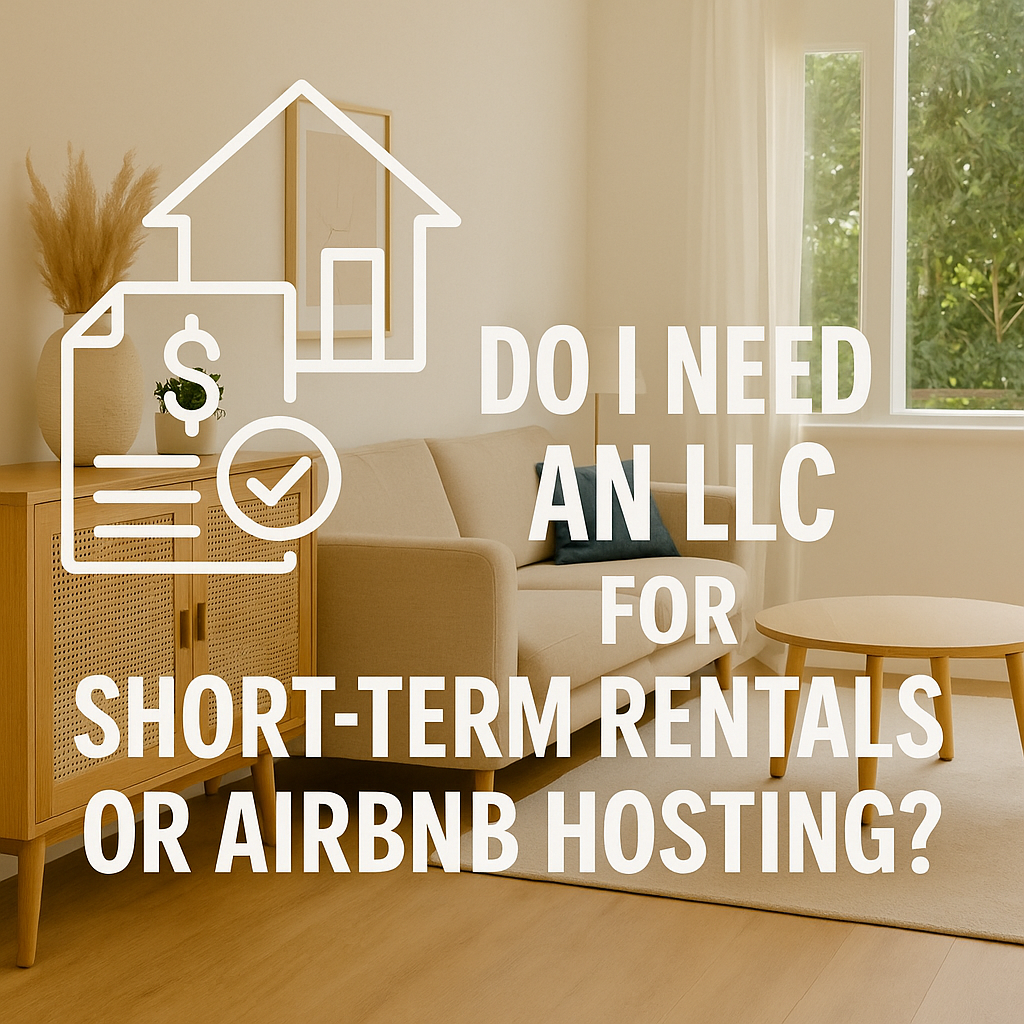If you’re thinking about renting out your vacation property on Airbnb or VRBO, or even offering a spare room in your home, you’ve probably wondered: Do I need to form an LLC (Limited Liability Company)? The answer depends on your goals, your risk tolerance, and how you want to manage your rental business.
What an LLC Does for Short-Term Rental Hosts
An LLC is a business structure that separates your personal assets (like your home, car, or savings) from your business activities. For short-term rental hosts, that can mean:
Liability Protection: If a guest gets injured or sues, your personal assets are typically shielded if your business is operated under an LLC.
Professionalism: An LLC signals to guests, lenders, and even Airbnb or VRBO that you take hosting seriously as a business.
Tax Flexibility: Depending on how you set it up, an LLC can sometimes offer tax advantages, but you’ll want to talk with a qualified tax professional to understand your specific situation.
Do You Have to Have an LLC?
In most states, no law requires an LLC to list your property on Airbnb, VRBO, or similar platforms. Many hosts begin as sole proprietors, essentially individuals who report rental income on their taxes. This is perfectly legal.
That said, as your rental business grows or if you’re hosting multiple properties, forming an LLC often becomes the smart move.
Risks of Hosting Without an LLC
Operating without an LLC means all liability falls directly on you. Even if you carry homeowner’s insurance or use Airbnb’s “AirCover” protection, those policies don’t cover every scenario. Without an LLC, your personal finances could be at risk if something goes wrong.
When an LLC Might Make Sense
You may want to consider forming an LLC if:
You own multiple short-term rental properties.
Your property generates significant income.
You want to protect personal savings and assets.
You plan to scale your hosting into a larger business.
If you’re renting out a spare room occasionally, an LLC might be overkill. But if you’re building a portfolio of short-term rentals, it’s worth serious consideration.
Alternatives and Precautions
Even without an LLC, you can reduce your risk by:
Carrying short-term rental insurance tailored to Airbnb/VRBO hosts.
Using strong guest screening practices.
Writing and enforcing clear house rules.
Keeping accurate financial records.
The Bottom Line
Forming an LLC for your short-term rental business isn’t required, but it can offer important protections as you grow. For many first-time hosts, starting without one is fine. But if you’re planning to expand, or simply want peace of mind, creating an LLC is a step toward safeguarding both your rental income and your personal assets.
Pro Tip: Always consult with an attorney or tax professional in your state to make the best decision for your unique situation.



